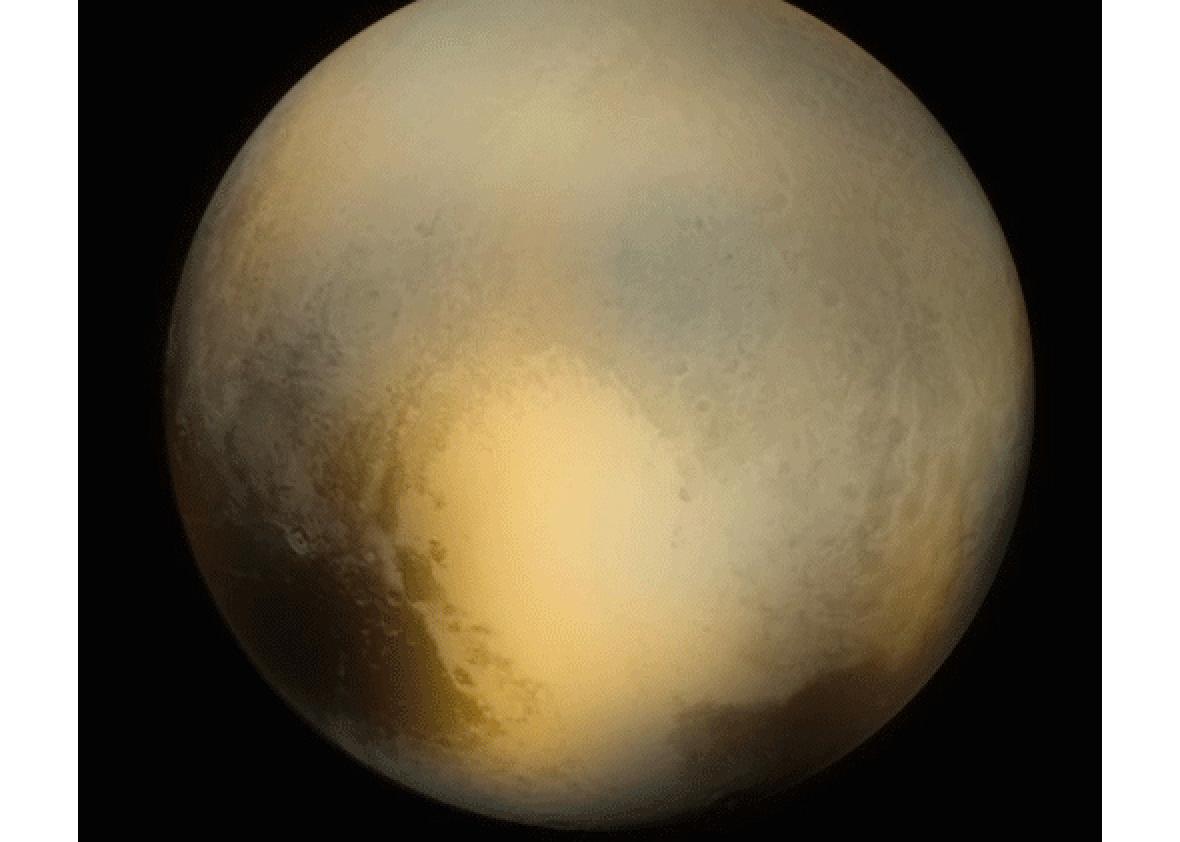Pluto: From Hubble to New Horizons
In 2010, a map of Pluto’s surface was created using multiple images taken by the Hubble Space Telescope. For half a decade, they were the best images of the world we had.
But that’s all changed. The folks at the Space Telescope Science Institute put together a nifty animated GIF showing just how much better the best got on Tuesday:
Photo by NASA/ESA/M. Buie (SwRI)/STScI/JHU-APL/SwRI
Very cool. And remember, the New Horizons shot is from before the closest approach! We'll be getting much, much higher resolution images soon.
I’ve been getting lots of questions asking why the Hubble images aren’t better. That’s understandable; people see incredible high-res Hubble pictures of planets, galaxies, nebulae … so why not Pluto?
It’s a matter of what’s called angular resolution, the ability to distinguish closely spaced small objects in the sky. For example, your eye has a resolution of about an arcminute, or 1/60th of a degree (where there are 90° from horizon to zenith, and, for comparison, the Moon is 30 arcminutes across).
Hubble has a resolution of very roughly 0.1 arcseconds, where an arcsecond is 1/60th of an arcminute. That means Hubble can see features on an object about 600 times better than your eye can! That’s pretty good.
And usually it’s good enough. We can see individual stars in other galaxies, breathtaking shock waves and ripples in gas clouds, and features speckling other planets.
But Pluto is small, and very far away. It’s only 2,370 kilometers in diameter (smaller than our Moon) and 5 billion km distant! Even Hubble sees it as only a few pixels across. Using sophisticated processing techniques, details can be teased out, but the result is what you see above.
That’s why there’s nothing like actually being there.
Incidentally, even on the closest astronomical object in the sky—the Moon—Hubble can only see objects about as small as a football stadium! I know that seems weird, but it’s true. Seeing the Universe takes some getting used to.
As for Pluto, there is a press conference scheduled for 3 p.m. ET on Wednesday, and that’s when we’ll finally see a few New Horizons images from the close encounter with Pluto on Tuesday morning. I’m so excited to see them! Stay tuned.



